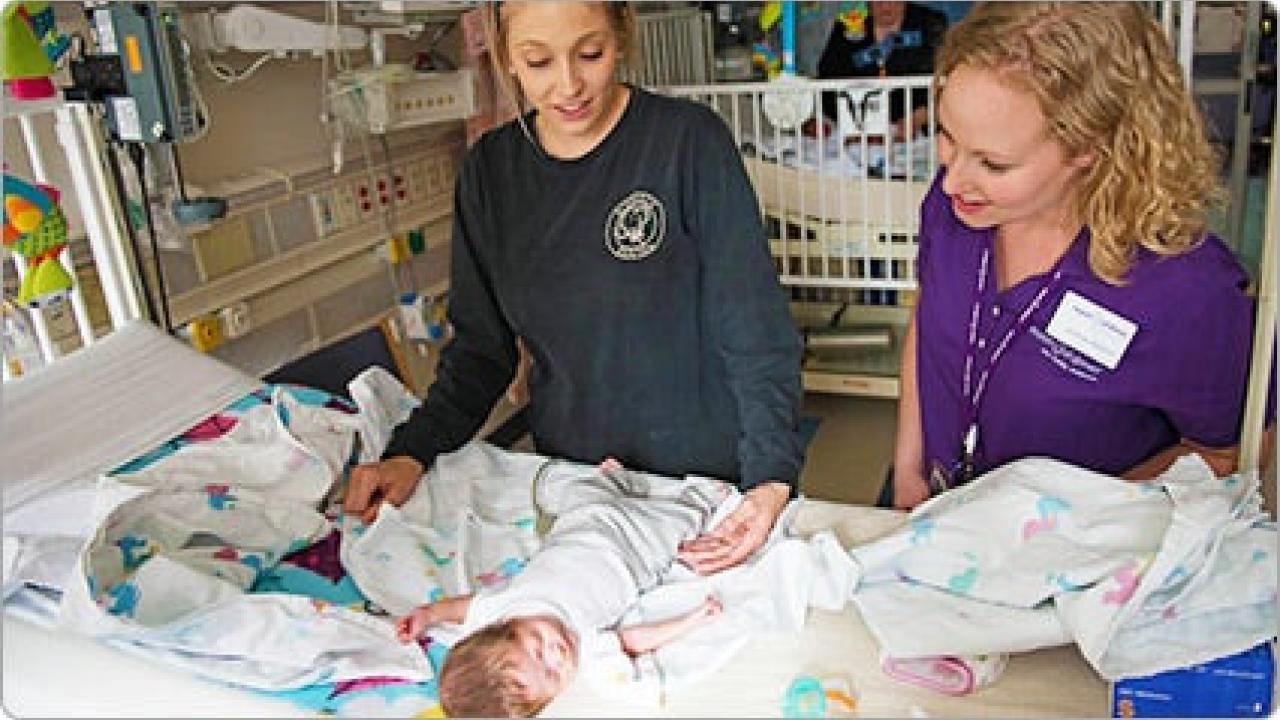Key Points
Touching and holding is an important part of caring for your baby in the NICU.
One way to hold your baby is called kangaroo care. This is when you hold your baby skin-to-skin on your chest.
Kangaroo care is good for your baby. It helps keep him warm, is good for his heart and breathing and helps him sleep better.
Kangaroo care is good for parents, too. It can help you feel close to your baby and reduce your stress.
If your baby’s not well enough for kangaroo care, you can touch her in other ways to comfort her.
What is kangaroo care?
Kangaroo care is when you lay your diapered baby on your bare chest (if you’re the father) or between your bare breasts (if you’re the mother). It’s also called skin-to-skin care because your baby’s bare skin is touching your bare skin. Put a blanket on your baby’s back to help keep him warm.
Kangaroo care is great for both you and your baby, especially if your baby’s in the newborn intensive care unit (also called NICU). Doing kangaroo care for at least 1 hour is best. But you can do it for as long as you and your baby are comfortable. Talk to your baby’s health care providers about how often you can do kangaroo care in the NICU. You also can do kangaroo care after your baby’s home.
How can kangaroo care help your baby?
Kangaroo care may help your baby:
- Stay warm
- Keep his heart and breathing regular
- Gain weight
- Spend more time in deep sleep
- Spend more time being quiet and less time crying when he’s awake
- Have a better chance at breastfeeding
How can kangaroo care help you?
Kangaroo care may help you:
- Make more breast milk. Breast milk is the best food for most babies in the first year of life.
- Reduce your stress
- Help build your confidence to take care of your baby
- Feel close to your baby
When can you start kangaroo care?
Some babies can start kangaroo care soon after birth and some babies may need to wait. You can do kangaroo care with your baby even if he’s connected to NICU equipment. Ask your baby’s providers when you can start kangaroo care with your baby.
How can you comfort your baby if he’s not ready to be held?
If your baby isn’t well enough for you to hold, you can be close to him in other ways. For example, you can do gentle, still touch called hand hugs (also called a containment hold or hand swaddling). To do a hand hug, with your baby laying on his back, put one hand gently on his head and the other gently on his tummy or around his feet. When you touch your baby, don’t stroke him. This can be overwhelming for babies.
Doing hand hugs can sometimes calm your baby when he’s fussy. It also can make you feel better because you can see your baby breathing and being calmed by your touch.
More information
Last reviewed: July, 2017

